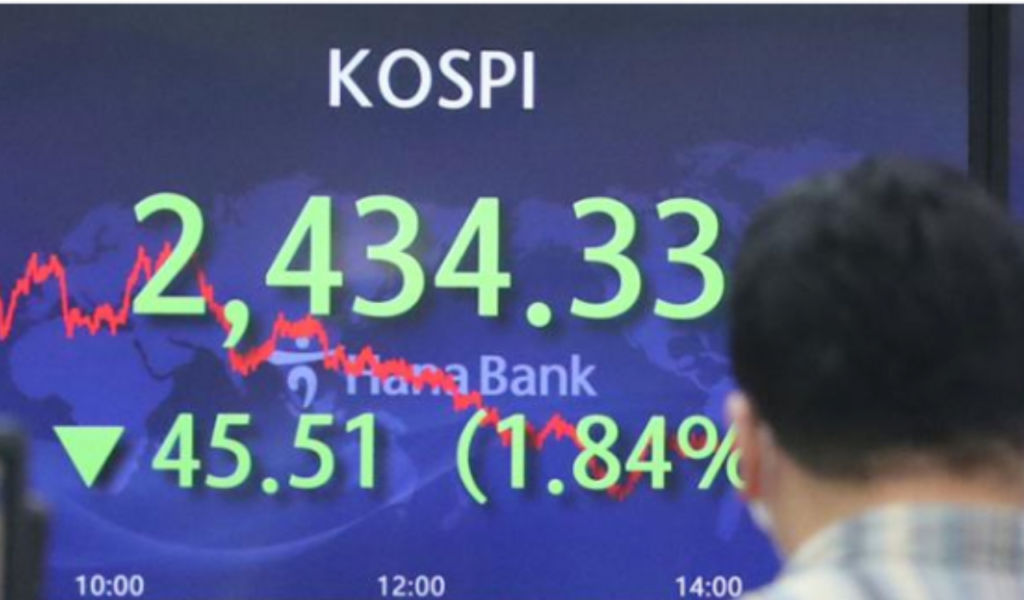Samsung Electronics let top large-cap stocks where KOSPI jump down nearly 2% on Dec. Which fell more than 3% in market capitalization, appear in the state of the week after another. The concerns over economic deterioration relaxed investor sentiment again and U.S. Federal Reserve’s rate adjustment the previous day was lasting for some time.
Korean Semiconductor Stocks sold by the Foreign Investors
From the previous day KOSPI finished at 2,434.33 on Dec. 2, down 1.84 percent. Then the execution of that, KOSPI unable to find one’s way what it had for the three regular trading days until the previous day. The KOSDAQ market closed at 732.95, down 1.03 percent, under pressure from foreign and institutional investors. Leading the stock market index to decline, foreigners and institutional investors sold 410 billion won and 510 billion won, respectively. Each of the single investors alone bought 910 billion won worth of stocks to prevent the KOSPI stock market from tumbling, but it fell measure small.
In particular, The stocks of two top semiconductor companies — Samsung Electronics (-3.51 percent) and SK Hynix (-3.31 percent) foreign and institutional investors sold large amounts. Large-cap stocks ranking high in the market cap standings fell at the same time. Of the total drop of -1.84 percent, those of stocks ranking first to fifth by market cap accounted for about 1 percent.
The November manufacturing index fell below 50 of the Institute for Supply Management (ISM)’s for the first time since May 2020 by reaching 49 and raised anxiety about an economic contraction. The index serves as a leading indicator of the U.S. economy. Where the graph is fully fluctuating there are some positive factors, like the Fed’s dovish remarks and China’s easing of zero-corona policies, disappeared, a bearish factor of an economic recession that had put pressure on the stock market throughout this year has risen to the surface again, stock market analysts explain.
Concluding…
In the source itself, it is framed that risk appetite decreased amid investors’ growing concern that the economy may slow down significantly, as said by Stock market analysts. Whereas the foreign exchange market of Seoul won-dollar exchange rate rose by 0.2 won to finish at 1,299.9 won, closing below 1,300 won for two days in a row on Dec. 2.
For more news and updates and other technical information, @Samnew24 will consistently provide you, stay tuned forever.
